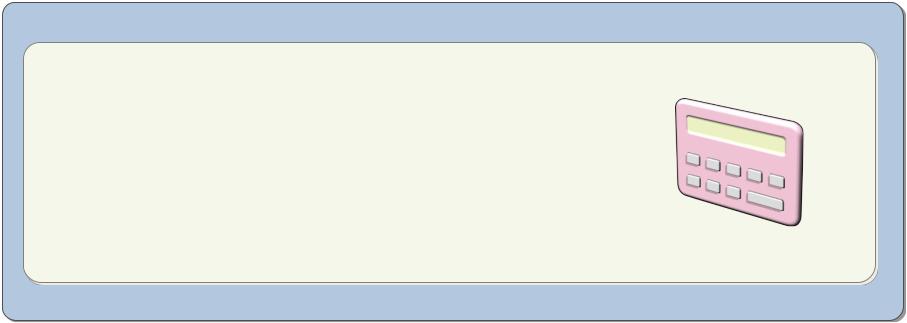
ТП лекція (змінні, типи,..
.).pdf
|
Implicit conversion |
|
|
From |
To |
|
|
sbyte |
short, int, long, float, double, decimal |
|
|
byte |
short, ushort, int, uint, long, ulong, float, double, decimal |
|
|
short |
int, long, float, double, decimal |
|
|
ushort |
int, uint, long, ulong, float, double, decimal |
|
|
int |
long, float, double, decimal |
|
|
uint |
long, ulong, float, double, decimal |
|
|
long, ulong |
float, double, decimal |
|
|
float |
double |
|
|
char |
ushort, int, uint, long, ulong, float, double, decimal |
|
|

Interception narrowing conversions of data
Key words:
•checked
•unchecked
byte var1 = 150; byte var2 = 150; try {
byte sum = checked((byte)(var1+var2)); Console.WriteLine("Сумма: {0}", sum);
} catch (OverflowException ex){}

Read-Only Variables and Constants
Read-only variables
Declared with the readonly keyword
Initialized at run time
readonly string currentDateTime = DateTime.Now.ToString();
Constants
Declared with the const keyword
Initialized at compile time
const double PI = 3.14159; int radius = 5;
double area = PI * radius * radius; double circumference = 2 * PI * radius;
Lesson 2: Using Expressions and
Operators
•What Is an Expression?
•What Are Operators?
•Specifying Operator Precedence
•Best Practices for Performing String Concatenation

What Is an Expression?
Expressions are the fundamental constructs that you use to evaluate and manipulate data
a + 1
(a + b) / 2
"Answer: " + c.ToString()
b * System.Math.Tan(theta)

What Are Operators?
Operators are character sequences that you use to define operations that are to be performed on operands
Arithmetic +, -, *, /, %
Increment, decrement ++, --
Comparison ==, !=, <, >, <=, >=, is
String concatenation +
Logical/bitwise &, |, ^, !, ~, &&, ||
Indexing [ ]
Casting ( ), as
Assignment =, +=, -=, *=, /=
Bit shift <<, >>
Type information sizeof, typeof
Delegate concatenation +, -
Overflow checked, unchecked
Indirection, Address *, ->, [ ], &
Conditional (ternary operator) ?:

Specifying Operator Precedence
Highest
Lowest
++, -- (prefixes), +, - (unary), !
*, /, %
+, -
<<, >>
<, >, <=, >=
==, !=
&
^
|
&&
||
Assignment operators
++, -- (suffixes)

Strings
string address = "23";
char[] chararray = {'e', 'x', 'a', 'm', 'p', 'l', 'e'}; string str = new string(chararray);
Compare() |
СоруТо() |
Insert() |
PadLeft() |
|
PadRight() |
||||
|
|
|
||
|
|
|
|
|
CompareOrdinal() |
Equals() |
Join() |
Remove() |
|
Replace() |
||||
|
|
|
||
|
|
|
|
|
Concat() |
Format() |
LastlndexOf() |
Split() |
|
|
|
|
|
|
Contains() |
IndexOf() |
LastlndexOfAny() |
Substring() |
|
|
|
|
|
|
|
Trim() |
ToUpper () |
|
|
IndexOfAny() |
ToLower() |
|
||
|
|
|||
|
|
|
|

Best Practices for Performing String
Concatenation
Concatenating multiple strings in C# is simple to achieve by using the + operator
address = address + ", Oxford Street"; address = address + ", Thornbury";
This is considered bad practice because strings are immutable
A better approach is to use the StringBuilder class
StringBuilder address = new StringBuilder();
address.Append("23"); address.Append(", Oxford Street"); address.Append(", Thornbury");
string concatenatedAddress = address.ToString();
Lesson 3: Creating and Using
Arrays
•What Is an Array?
•Creating and Initializing Arrays
•Common Properties and Methods Exposed by Arrays
•Accessing Data in an Array
